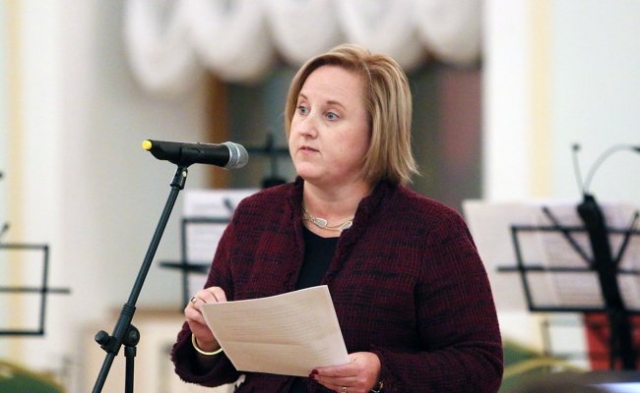She earned her B.A. from the University of North Carolina at Chapel Hill and an M.P.P. from Princeton University. She speaks Russian, French and some Georgian.
"Since Belarusian President Alexander Lukashenko came to power in 1994, he has consolidated power through widespread repression. In 1996, Lukashenko reacted to Western criticism of a referendum that dissolved Parliament and expanded the authority of the presidency by temporarily expelling the US and EU Ambassadors.
"After a presidential election in 2006 that violated international norms and was neither free nor fair, the United States implemented travel restrictions and targeted financial sanctions on nine state-owned entities and 16 individuals (including Lukashenko).
"In 2008, after the United States tightened sanctions due to worsening human rights abuses, Belarus expelled the US ambassador and 30 out of 35 US diplomats.
"In August 2015, Lukashenko released all six of Belarus’ political prisoners. In response, the United States provided limited sanctions relief, suspending sanctions on state-owned entities. Since then, Belarus has taken some steps to improve democracy and human rights.
"In 2019, the United States and Belarus announced they would exchange ambassadors as the next step in normalizing bilateral relations.
"Increased engagement depends on Belarus making additional progress on human rights and democracy issues," the US Department of State says.
By Ana Dumbadze
Image: Julie Fisher
Photo: Reuters












